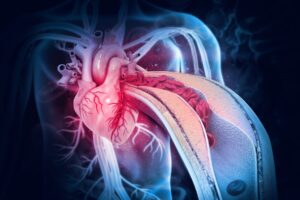 Cholesterol can be confusing stuff. There’s good cholesterol, bad cholesterol, foods with cholesterol that don’t impact blood cholesterol, and foods without it that do.
Cholesterol can be confusing stuff. There’s good cholesterol, bad cholesterol, foods with cholesterol that don’t impact blood cholesterol, and foods without it that do.
It might be that the only thing most people really understand about cholesterol is that if it gets too high, it can pose a major risk to their heart, health, and risk for a heart attack.
Advertisement
So, let’s clear up some of the confusion around cholesterol so you know what to do to keep your blood cholesterol levels in a healthy range.
Cholesterol is a waxy substance that is not inherently bad. Your body needs it to build cells and manufacture vitamins and hormones.
There are different types of it, too. Low-density lipoprotein, or LDL, can be known as “bad” cholesterol. On the other hand, there is also high-density lipoprotein, or HDL, known as “good” cholesterol.
LDL can be bad because when too much of it is in your blood, the particles can accumulate along arterial walls to narrow and stiffen arteries. This can boost blood pressure and strain the heart. HDL is good because it can help clear those LDL deposits.
So how does diet play a role in something your body naturally manufactures? The food you eat can alter the speed, and type, of cholesterol production. The thing is, it doesn’t matter if there is cholesterol in the food. The cholesterol in eggs, for example, will not lead to increases in blood cholesterol.
Research has found that sugary foods cause the body to produce and release more “bad” LDL into the bloodstream. Therefore, you can limit it by eating fewer sugary and processed foods.
Advertisement
On the other hand, healthful foods containing fiber, like oats, whole grains, fruits, and vegetables, can help remove LDL from arterial walls, where it is expelled from the body as waste.
Some foods may contribute to higher HDL, as well. Olive oil, blueberries, eggplant, fatty fish, and other antioxidant-rich foods have been found to boost HDL. Regular exercise and weight loss may also lead to increased “good” HDL.
So hopefully, that clears up some of the confusion around cholesterol to help you make better and healthier choices.
